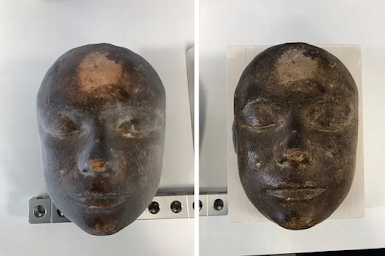Mary Ball - Coventry
Mary Ball of Coventry, is another victim of the societal norms of the Victorian era. Due to the attitudes towards domestic abuse, and the view that a wife was the property of her husband. The law made little provision to women who found themselves in desperate situations.
Mary was born in Nuneaton to Isaac and Alice Wright in 1818. Very little is known about her early life, but she married Thomas Ball in 1837 at the age of 20. However, just like today this marriage had all the hallmarks of a domestic abuse case. The marriage was described as tempestuous, and their fights borne out of poverty and desperation boiled out into the streets. To add to this dangerous mix, Thomas had found out that Mary was having an affair with 19-year-old William Bacon and, 5 out of her 6 children that she had with Thomas died leaving only a daughter, Mary Ann Ball who survived.
On the 18th May 1849, Thomas who was a labourer on the Thames Valley Railway had returned from fishing. He sat down to his supper which Mary had prepared for him and started suffering from excruciating pains in his stomach. The attending doctor, however, ruled that Thomas died of inflammation of the bowls.
Although, there was no suspicion on Mary there were sufficient rumours which persisted in the way that Thomas died. When she was questioned by constables, the inconsistencies in her story about what the arsenic in her posession was intended for, that she did finally admit that some arsenic accidently fell in his supper. A post-mortem showed that there was arsenic in Thomas' body.
Awaiting to be punished, she was visited by the prison Chaplain, the Rev Chapman who tried to make her confess to her crime. He lit a candle to her arm causing burns and blisters. The governor of the prison heard about the torture and fired the Chaplain. Mary who had always protested her innocence did finally confess to the crime to the Governor, she said:
“I told him (reverend) I knew nothing about it myself, but that is false. I put the arsenic on the mantle shelf and told him there was some salts on the shelf - he might take them, they would do him good; but I knew at the time it was not salts, but I thought if he taken it himself, I should not get into any scrape about it, for the people would think he took it in mistake.”
The governor asked her why she had done it and Ball stated: “Why, my husband was in the habit of going with other women, and used me so ill; no-one knows what I have suffered, but had I have known as much as I do now I would not have done it, for I would rather have left him and went to the Workhouse; but I hope God will forgive me.”
Mary Ball was hung on Thursday 9th of August, it was estimated that 15-20'000 people attended the execution. She was hung by a Nuneaton native James Japhcote, she appeared to die easily. Mary's remains were later buried in the prison grounds. This would be the last public execution in Coventry.
https://www.coventrytelegraph.net/news/coventry-news/tragic-story-mary-ball-last-20621674
https://www.coventrytelegraph.net/news/coventry-news/coventry-crime-files-20000-people-12991353
http://www.capitalpunishmentuk.org/mary_ball.html







No comments:
Post a Comment